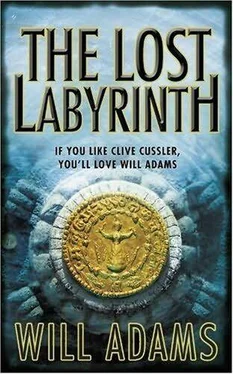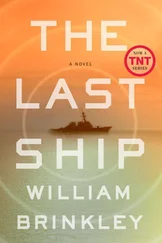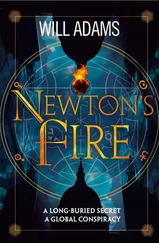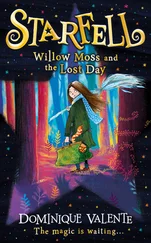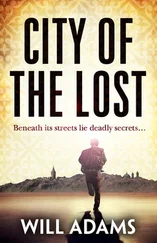Will Adams - The Lost Labyrinth
Здесь есть возможность читать онлайн «Will Adams - The Lost Labyrinth» — ознакомительный отрывок электронной книги совершенно бесплатно, а после прочтения отрывка купить полную версию. В некоторых случаях можно слушать аудио, скачать через торрент в формате fb2 и присутствует краткое содержание. Жанр: Прочие приключения, на английском языке. Описание произведения, (предисловие) а так же отзывы посетителей доступны на портале библиотеки ЛибКат.
- Название:The Lost Labyrinth
- Автор:
- Жанр:
- Год:неизвестен
- ISBN:нет данных
- Рейтинг книги:4 / 5. Голосов: 1
-
Избранное:Добавить в избранное
- Отзывы:
-
Ваша оценка:
- 80
- 1
- 2
- 3
- 4
- 5
The Lost Labyrinth: краткое содержание, описание и аннотация
Предлагаем к чтению аннотацию, описание, краткое содержание или предисловие (зависит от того, что написал сам автор книги «The Lost Labyrinth»). Если вы не нашли необходимую информацию о книге — напишите в комментариях, мы постараемся отыскать её.
The Lost Labyrinth — читать онлайн ознакомительный отрывок
Ниже представлен текст книги, разбитый по страницам. Система сохранения места последней прочитанной страницы, позволяет с удобством читать онлайн бесплатно книгу «The Lost Labyrinth», без необходимости каждый раз заново искать на чём Вы остановились. Поставьте закладку, и сможете в любой момент перейти на страницу, на которой закончили чтение.
Интервал:
Закладка:
Edouard watched in horror. Davit was only in trouble for trying to reassure him. He felt he should be doing something to help, but he was paralysed by fear. Davit slapped the ground in submission, yet Mikhail still didn't relent. His struggles began to weaken, his eyes threatened to turn upwards, and finally Mikhail dropped the belt contemptuously onto the floor, allowing Davit to get a fingertip beneath the noose to loosen it, then to turn onto his side and suck great draughts of air into his starving lungs.
Mikhail sank down onto his haunches to gather up his belt and feed it back through his belt-loops. Then he lifted Davit's head by a hank of hair and looked him in his eyes. 'I need you alive,' he said. 'You should be glad of that.'
'I'm sorry, sir,' gasped Davit, tears streaming down his cheeks. 'I didn't mean anything.'
'If you ever say anything disrespectful about-'
'I won't! I swear I won't!'
'Don't interrupt me,' said Mikhail. 'I don't like being interrupted.'
'I'm sorry,' wept Davit. 'I'm sorry. I didn't mean anything.'
'Good. Then as I was saying, if you ever again say anything disrespectful about me again, it won't matter whether I need you alive or not. Is that clear?'
'Yes.'
'Yes, what?'
'Yes, sir.'
Mikhail let him go, then stood up and looked disdainfully down. 'Pull yourself together,' he said. 'We've got work to do.'
II
Iain and Gaille headed up into the central highlands, quickly leaving the built-up northern coast behind. A row of wind turbines stood like Easter Island statues on a ridge, holding vigil over the seas. Away to her right, the snow-capped peaks of the White Mountains came into view. Nearby, crude stepped terraces had been cut in the hillsides, their fields full of raw young crops, while sunlight glittered on their mica-rich stone walls. Traffic clogged as the road narrowed through villages and towns. They'd been driving for less than an hour when they crossed another ridge and the southern sea came into view, the plain beneath them crawling with ugly grey polythene-clad greenhouses, like so many maggots.
Iain leaned forward and pointed away to their left. 'See that hill?' he asked. 'Phaistos.'
'Where the disc came from?' asked Gaille. The Phaistos disc was a famous fired-clay Minoan tablet stamped front and back with spirals of unfamiliar symbols. It had baffled archaeologists, historians and everyone else who'd studied it, who'd explained it away as everything from a mathematical theorem to a board-game.
'I'll take you round the palace on our way back, if we have time,' nodded Iain. 'It's a wonderful setting. And far fewer tourists than Knossos, of course, though still pretty busy, especially in season.' He glanced sideways at her. 'Crete's like Egypt that way. Tourists come for the sun and the sand, but they like a bit of culture too. Which makes the Minoans big business. Take the Phaistos disc, for example. There's a lot of controversy about its authenticity. I'm pretty sure that it's for real myself, but plenty of others reckon Luigi Pernier, the Italian archaeologist who found it, faked it himself out of jealousy for all the publicity Sir Arthur Evans was getting over at Knossos. But the point is, the dispute could be resolved one way or the other in a heartbeat if Heraklion Museum allowed a thermoluminescence test. They won't, of course. It's one of the most iconic images of Minoan Crete, so why risk it?' He shook his head. 'That's the way things work here. Profit before truth every time.'
'Says the author of The Atlantis Connection,' she teased.
'I guess I asked for that,' he laughed ruefully, as they came up behind a diesel-belching lorry on the switchback descent. 'But at least I'm not trying to hide anything. I honestly believe the Atlantis legend is a genuine folk-memory of the Minoans.' He slid her a glance. 'You know the gist of it, I assume?'
'Sure,' shrugged Gaille. 'In ten thousand or so B.C. there was a great empire called Atlantis somewhere west of the pillars of Hercules. It was larger than Africa and incredibly powerful, yet was eventually defeated by Athens and other Greek cities before being destroyed by an extraordinary cataclysm, never to be seen again.'
'You sound sceptical,' said Iain, swinging out wide to see if there was any way to overtake the lorry, before pulling sharply back in when he saw a car approaching.
'We only have the one source for the story,' replied Gaille, 'and that's Plato, who wasn't exactly frightened of using allegory to explain his ideas. There never was any great island west of the pillars of Hercules, or geologists would have discovered it by now. And there were no civilisations to speak of in ten thousand B.C., or we'd have found evidence of them. And even if there had been, then Athens couldn't have been involved in destroying it, because it didn't exist back then. And Egyptian temples couldn't have recorded it, because they didn't exist either. So, yes. I'm a little sceptical.'
A short stretch of empty road appeared ahead. Gaille braced herself with her feet as Iain charged the Mustang recklessly into an overtake, tooting his horn to warn the lorry driver and any oncoming traffic. 'Look,' he said, swinging back in once he'd passed it, 'I know Atlantis is risky territory. All those outlandish theories about fish people from outer space with ludicrously advanced technology. But there's nothing in Plato about fish-people or aliens. Believe me. I've looked. And the technology he describes isn't much more than irrigation systems and hot and cold running water, which we know the Minoans had.'
'Not in ten thousand B.C.'
'Of course not. You're absolutely right that a lot of Plato's account simply doesn't fit.' They came up behind a long train of traffic, and for a horrible second, Gaille feared Iain was about to try and overtake it all in one go, but then he clucked his tongue in evident frustration, and fell into line instead. 'But you've got to remember how much the story went through before it even got to Plato. For one thing, some Egyptian had to record the story in the first place. Easier said than done. They didn't have Reuters back then. They couldn't just turn on CNN. Garbled stories would have come in from across the ancient world, leaving some poor sap to try to make sense of it. And once they'd made a record, they had to keep it safe in their temple archives, even though that temple and much of northern Egypt was under foreign occupation for much of the Minoan era. And you must know better than anyone that the Egyptians weren't anything like as meticulous in their record-keeping as popular opinion would have them. They were just as lazy, deceitful, propagandistic and prone to natural disasters as anyone else. Then there's the Egyptian High Priest who read the story in his temple records and told it to the Greek Solon. Surely there's at least the possibility that something got mangled in the translation. Solon then went back home and told it to his grandson, who later told his own grandson, who in turn told it to Socrates before Plato wrote it down. How many different people is that it had to pass through? And yet you somehow expect his account to capture the fall of the Minoan empire with perfect accuracy?'
'I don't expect anything,' said Gaille mildly.
'Take this business of dates. Plato said that Atlantis was destroyed nine thousand years before Solon's time. The Minoan empire collapsed nine hundred years before Solon's time. Isn't it just possible that someone somewhere got a symbol wrong?'
'What about it being west of the pillars of Hercules? Or being larger than Africa?'
'Some people back then believed that the Hercules had set his pillars at the Hellespont, not the Straits of Gibraltar. Crete was west of them. And, yes, the Egyptian high priest did indeed describe Atlantis as bigger than Africa, but he went straight on to say that it was the main island of an archipelago ruled by a confederation of kings. Plato describes this main island as a rough oblong, six hundred kilometres long by three hundred wide. Nothing like as big as Africa, but actually pretty close to Crete. So it wasn't the island of Atlantis that was huge, but the area it controlled. The Minoan empire had outposts all over the Eastern Mediterranean, from Greece round to Egypt, just like Atlantis did. Add all this space together, land and sea, then you do indeed get a vast area, as large as Africa was believed to be back then.'
Читать дальшеИнтервал:
Закладка:
Похожие книги на «The Lost Labyrinth»
Представляем Вашему вниманию похожие книги на «The Lost Labyrinth» списком для выбора. Мы отобрали схожую по названию и смыслу литературу в надежде предоставить читателям больше вариантов отыскать новые, интересные, ещё непрочитанные произведения.
Обсуждение, отзывы о книге «The Lost Labyrinth» и просто собственные мнения читателей. Оставьте ваши комментарии, напишите, что Вы думаете о произведении, его смысле или главных героях. Укажите что конкретно понравилось, а что нет, и почему Вы так считаете.
